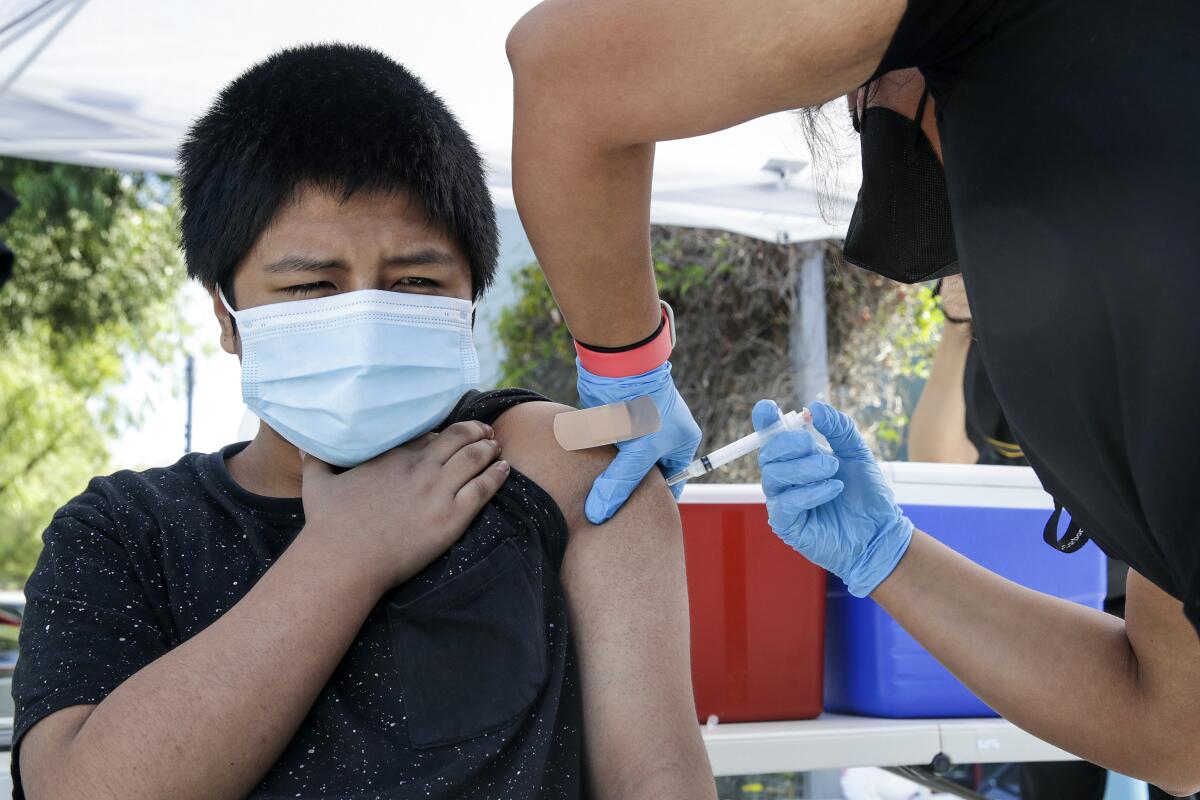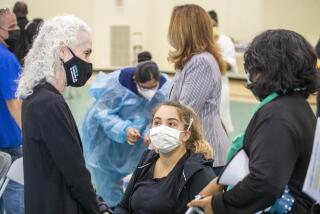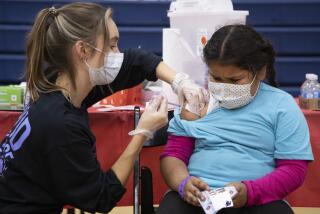Editorial: A gaping hole in Gov. Newsom’s school vaccine ‘mandate’

Gov. Gavin Newsom’s supposed COVID-19 vaccine mandate for students and staff in California public schools had some obvious holes from the start. And the gap between “mandate” and “do what you want” grows wider with time, to the extent that it’s unclear the new requirement will accomplish anything.
To begin with, under Newsom’s mandate students would not be required to get a shot until the school term after the U.S. Food and Drug Administration gave full approval to a vaccine for their age group. Yet kids 16 and older have that approval now for the Pfizer-BioNTech vaccine; why not begin the process for them at this moment? It makes little sense to wait. Put parents on notice now that the mandates will be coming as soon full FDA approval is in place.
For example, if the FDA doesn’t approve the vaccines for 12- to 15-year-olds until January — they qualify now under emergency authorization, but that’s not the same as final approval — the Newsom mandate begins the summer of 2022. Why wait half a year to get things moving?
Beyond that, existing state law prohibits the governor from mandating new vaccinations for schoolchildren unless there is a personal belief exemption. Newsom could have boldly employed his emergency powers to override the exemption provision, but chose a more cautious route. The Legislature could pass a law when it reconvenes next year adding COVID-19 shots to the list of 10 immunizations that schoolchildren are required to receive unless they have a medical exemption. But, in a recent Times story, the governor’s office wouldn’t comment on whether he’d support a bill that would remove the personal belief waiver for COVID-19 shots.
What gives? Newsom should already be actively pushing for such a bill, and selling it to the public.
A personal belief exemption is an unlimited hall pass because the people who are hesitant about or downright hostile toward the vaccines are in fact expressing their sincere personal belief, wrongheaded though it may be. If we weren’t talking about a virus that has killed more than 700,000 Americans within about a year and a half, and that shows a dismaying propensity to spin off new and more dangerous variants, a personal belief opt-out would be less of a concern. Unfortunately, the country isn’t in that position. Too few people have offered up their arms for a jab, and their decision affects the health of everyone around them.
It’s not going to be easy to pass a law mandating COVID-19 vaccination of students, teachers and other staff even under the best of circumstances. In case anyone forgot the turmoil in 2015 after lawmakers passed Senate Bill 277, which ended nonmedical exemptions for immunizations required of schoolchildren, there were vehement protests and massive lobbying efforts.
The whole reason for SB 277 was that vaccination rates for preventable childhood disease had dropped significantly for years, in part because of anti-vaccination misinformation. Feelings are even stronger about the COVID-19 vaccines, two of which use a novel technology. Many parents don’t see their kids or their families as being at high risk; to the extent that that’s true, they’re largely piggybacking on the protection from those who are vaccinated, whose actions on behalf of their own health and that of their communities have made it possible for Americans to resume most aspects of normal life.
But the Delta variant of the virus doesn’t kid around, and the very best way to fight it and future variants is with high vaccination rates. The evidence is incontrovertible when you look at COVID-19 rates in high-vaccination states versus those where fewer have gone in for their shots. Public health campaigns have reached most of the willing and many of the wavering; the rest won’t be moved without mandates.
Newsom shouldn’t just be following the Legislature’s footsteps by agreeing to sign the mandate bill it hopefully will pass. He should urge the Legislature to help him get rid of the personal belief exemption to COVID-19 vaccine rules that basically tells parents and staff they’re free to do what they want. That is not a mandate.
More to Read
A cure for the common opinion
Get thought-provoking perspectives with our weekly newsletter.
You may occasionally receive promotional content from the Los Angeles Times.










